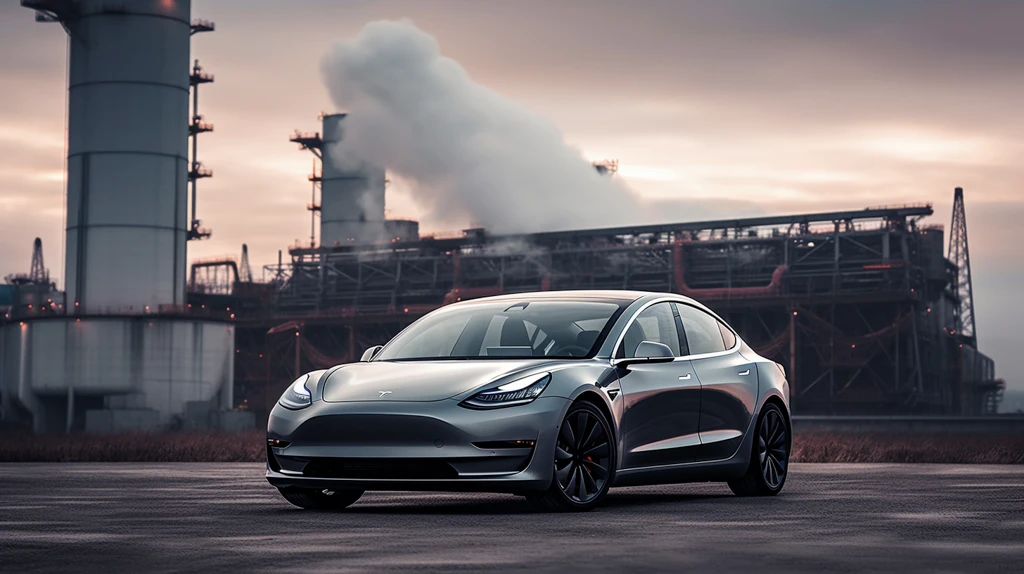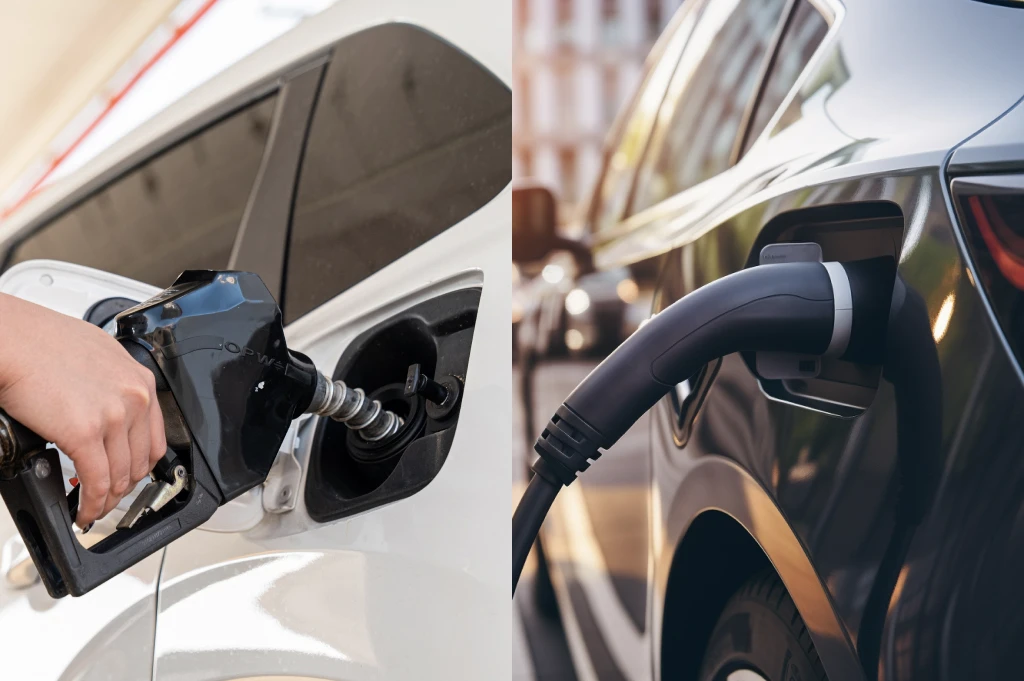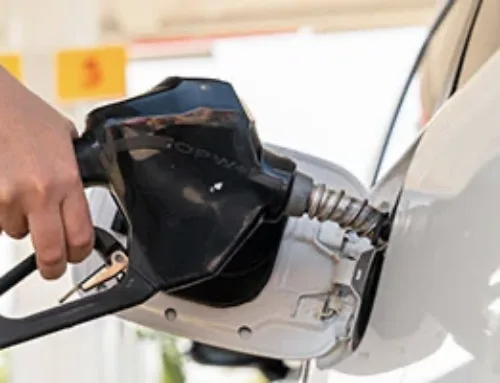Table of Contents
Electric vehicles (EVs) used to be a dream of the future, but now they’ve arrived and are becoming more and more common. You’ll see them driving down our streets and highways and becoming an integral part of the transportation landscape. But as their popularity surges, so does the debate around their true environmental impact. Are they the green heroes we’ve been waiting for, or is there more to the story? In this article, we’ll look at the pros and cons, examine the environmental benefits and drawbacks of electric vehicles, and answer the question, “Are electric cars good for the environment?” Spoiler alert —they’re definitely better for the environment than their gas-guzzling counterparts!

Environmental benefits of electric vehicles
First, let’s look at the benefits of EVs and how they’re better for the environment!
No more tailpipe emissions—reducing greenhouse gas emissions
One of the biggest electric car benefits is in reducing greenhouse gas emissions. Unlike traditional gas-powered cars, EVs don’t produce any tailpipe emissions – at all! This means cleaner air in our cities and a significant step towards reducing our carbon footprint. According to the New York Times, electric cars can cut emissions by more than half compared to their gasoline counterparts when taking into account electricity generation emissions. That’s a substantial reduction, especially if we consider the potential global impact of more people making the switch to an electric vehicle. Thanks to the reduction in emissions, EVs can also help reduce air pollution. Improving air quality like this can result in fewer health problems related to air pollution and a more enjoyable urban living experience.

Energy efficiency and conservation
Because of the way they use energy, electric vehicles are champions of energy efficiency. They use an electric motor to convert energy directly into movement, meaning that they convert up to 70% of the electrical energy in their EV batteries to movement. In diesel and gasoline cars, only a maximum of 40% of the energy in the fuel is converted to movement. Most of the energy dissipates when the gas is burnt. This efficiency translates to more miles per energy unit and less waste.
Potential for renewable energy sources
The beauty of electric vehicles is that they can be charged entirely using renewable energy sources like solar, wind, or hydroelectric power. This means that as our energy grid becomes greener, so do our electric cars. Imagine driving a car powered by the sun or the wind; it’s not just poetic, it’s possible! If you happen to have solar panels on your house and charge your car at home, you are likely to have even fewer greenhouse gas emissions than someone who charges their car via the grid.
Environmental drawbacks of electric vehicles
No technology is perfect, and that’s true of EVs, too. The electric car manufacturing process isn’t perfect, although it’s important to note neither is manufacturing gasoline vehicles.
Battery manufacturing disposal and recycling
One area where there is room for improvement is with electric vehicle batteries. The production of EV batteries comes with its own set of environmental challenges. Mining materials like lithium, cobalt, and nickel can have serious ecological impacts, including habitat destruction and soil and water pollution, as well as health issues for the miners. It’s a complex issue that adds a shade of gray to the green image of electric vehicles. However, many big vehicle manufacturers are working to reduce the environmental effects of their battery manufacture and sourcing.
It’s also true that manufacturing battery electric cars emits more carbon dioxide than producing gas-powered cars. This is largely due to the energy-intensive process of producing EV batteries. Once an EV battery reaches the end of its life, what happens next? Recycling EV batteries isn’t easy. Most of them are lithium-ion batteries, which are currently not frequently recycled. While efforts are being made to improve recycling technologies and reuse these batteries, we’re still facing challenges in handling them in an environmentally friendly way.
Dependence on non-renewable energy for charging
While EVs can be charged using renewable energy, many areas still rely heavily on fossil fuels for their electricity. This means that if you’re charging your electric car from a standard outlet, you might still be indirectly contributing to greenhouse gas emissions. However, even with an EV’s battery power coming from fossil fuels, it’s still going to be better for the environment than almost all but the most efficient gas-powered cars. You can use this interactive tool to check out how different cars compare.
Electric vs. conventional vehicles

The comparison between electric and conventional vehicles isn’t as straightforward as it might seem. While electric vehicles excel in areas like energy efficiency and tailpipe emissions, the environmental impact of battery production and disposal adds complexity to the equation. However, when you pit an electric car against a gasoline car, the electric vehicle will be the greener option overall. Estimates from the U.S. Department of Energy’s Office of Energy Efficiency and Renewable Energy show that, over its complete lifecycle, a gasoline vehicle will be responsible for about twice the overall amount of greenhouse gases as an EV.
The road ahead: opportunities and challenges
With EV and battery technology improving all the time, the future is looking bright for the electric car!
- Innovation is the driving force behind the future of electric vehicles. From improving battery efficiency to developing new recycling methods, technological advancements hold the key to addressing many of the environmental challenges associated with EVs.
- Government policies and regulations play a vital role in shaping the future of electric transportation. Incentives for EV buyers, investments in charging infrastructure, and regulations promoting renewable energy can all contribute to a more sustainable electric vehicle ecosystem.
Consumer behavior and market trends

The shift towards electric vehicles isn’t just about technology and regulations; it’s also about people. Consumer awareness, preferences, and behavior are playing a significant role in the success of electric vehicles in reducing environmental impact. As the range of electric vehicles grows and prices come down, EVs are becoming more popular with a wide range of consumers. This is likely to continue, so we look forward to seeing more electric cars on the road in the future.
Conclusion
Electric vehicles represent an exciting and promising step towards a more sustainable future. They offer substantial benefits, including reduced emissions, energy efficiency, and the potential integration with renewable energy sources. However, they are not without challenges. The environmental impact of battery production, disposal and the dependence on non-renewable energy for charging are concerns that need to be addressed. However, with innovation, regulation, and awareness, we can move towards a future where electric vehicles are not just a symbol of modernity but a genuine solution for sustainable living.
Frequently Asked Questions
Are electric cars better for the environment?
Yes, overall, electric cars are better for the environment than gas vehicles. However, they are probably not better for the environment than everyone cycling everywhere. Electric cars have some fantastic environmental benefits, like zero tailpipe emissions and the potential to run on renewable energy. But there are also some environmental challenges to consider, such as the impact of battery production and disposal. So, while electric cars are definitely a greener choice, especially as technology and renewable energy sources improve, it’s not a simple black-and-white answer. Think of them as a promising step towards a cleaner future, that is likely to get better over time!
What bad things do electric cars do to the environment?
Electric cars do have a few environmental issues, especially regarding their batteries. While they excel in reducing tailpipe emissions, there are some electric cars environmental cons. Primarily, the production and recycling of their batteries have some issues. Mining materials like lithium and cobalt can harm ecosystems, and the energy-intensive process of making the batteries can emit quite a bit of carbon dioxide. Plus, once those batteries come to the end of their useful life, recycling them still has some issues. So, while electric cars are undoubtedly greener than gasoline cars, there are still a few bumps to iron out before we can say a definitive yes to the question: “Are electric vehicles really green?”
Do electric cars reduce global warming?
Yes, electric cars can help to reduce global warming. By running on electricity instead of gasoline, they eliminate tailpipe emissions, including nasty greenhouse gases that contribute to climate change. If electric car batteries are charged with renewable energy like wind or solar, the benefits are even greater, with their total greenhouse gas emissions hugely undercutting those of vehicles with internal combustion engines. So if people try to give you 10 reasons why electric cars are bad, remember, there are many reasons why they are good for the environment.
What are the drawbacks of electric vehicles?
Electric vehicles (EVs) have a few minor drawbacks that are getting smaller all the time. On the plus side, they’re smooth, quiet, and eco-friendly on the road. But on the flip side, they come with challenges like limited driving range on a single charge and longer refueling times compared to gas-powered cars. Finding a charging station can also be tricky in some areas, too. And let’s not forget the environmental concerns related to battery production and recycling. However, these are all problems that can be fixed, allowing us to say “Yes” to the question “Are electric cars really green?”



